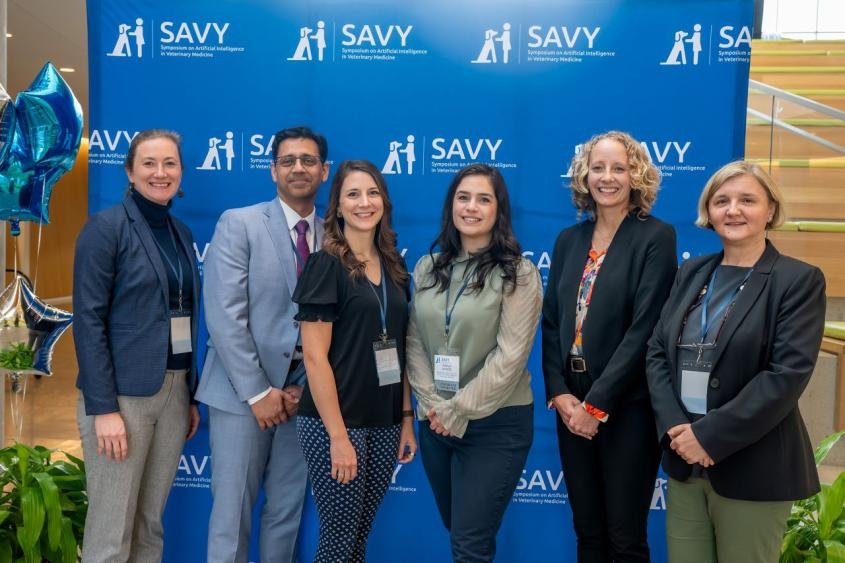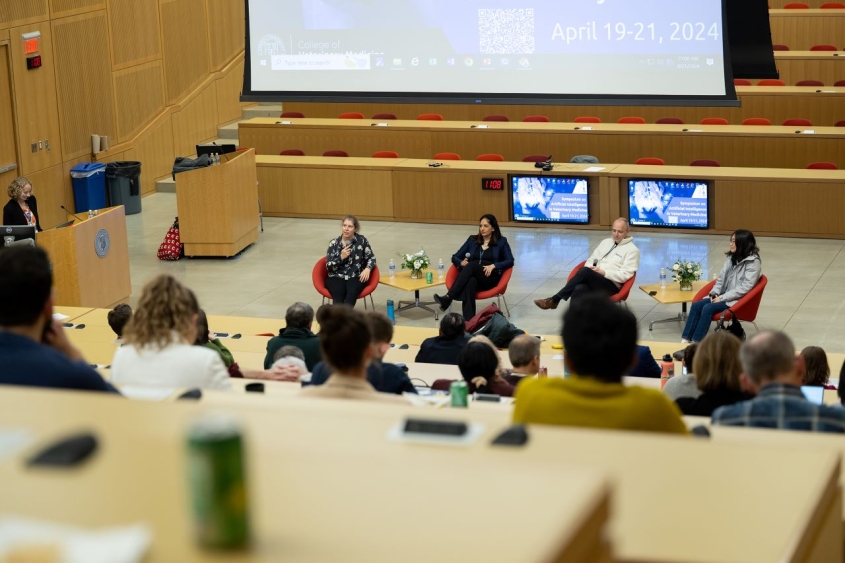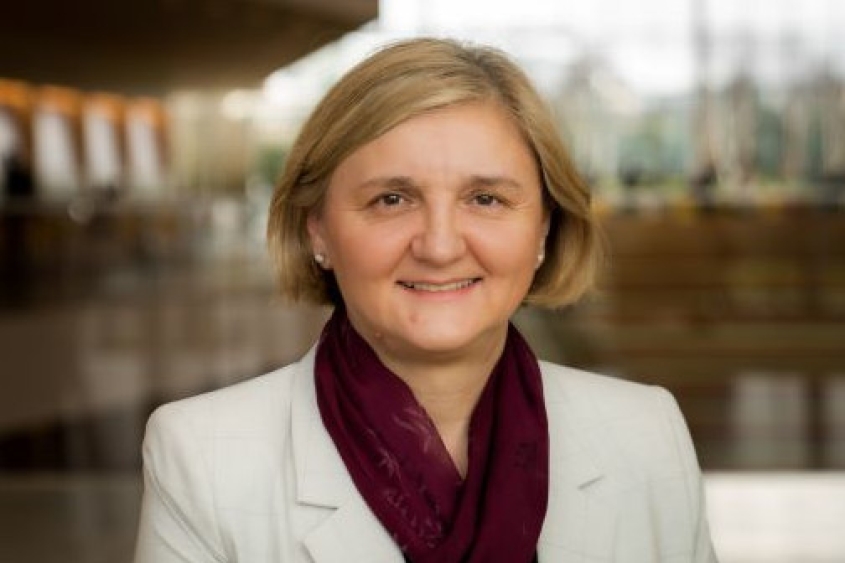CVM hosts inaugural conference on AI in veterinary medicine
For the first time ever, experts in veterinary medicine, AI researchers, industry pioneers, and thought leaders from around the world gathered at to the College of Veterinary Medicine (CVM) for the Symposium on Artificial Intelligence in Veterinary Medicine. Originally envisioned for 50 participants, the April event, nicknamed ‘SAVY’, exceeded the organizers’ expectations, drawing over 200 registrants to the highly interactive three-day program. SAVY was funded by the NIH and FDA as well as industry sponsors.
“There was a real thirst for knowledge here,” said Dr. Parminder Basran, associate research professor in the Department of Clinical Sciences and one of the event’s organizers. “What motivated us to create SAVY was the realization that many conversations and working groups on AI were happening in individual specialties within veterinary medicine, but so far no one had brought together the broader veterinary community.”
Cornell University is a fitting host institution, Basran believes. He points to much interdisciplinary work taking place within CVM and across campus, including at the Cornell Institute for Digital Agriculture and the AI for Science Institute, as well as to the presence of the Animal Health Diagnostic Center, the role of the Cornell University Hospital for Animals in veterinary care, and the close association of researchers with Weill Cornell Medicine. “When you put all these pieces together, you really start to see how well poised the College of Veterinary Medicine is to champion artificial intelligence,” Basran said.
The symposium’s events were organized around four pillars of veterinary medicine where AI is already having a large impact — patient-facing medicine for companion animals and livestock, population medicine and One Health. Four keynotes and numerous talks explored these themes, while a poster session, a small-group workshop, a closing panel and social gatherings offered participants further opportunities for discussion and building connections. A special roundtable brought together industry experts and academic leaders to share major challenges and possible solutions.
“My experience at the conference was delightful,” said Luke Dringoli, vice president of technology at Media Cause, who developed AI chatbot CatGPT with the Cornell Feline Health Center and spoke at the conference. “Even though the conference was narrowly focused on AI in veterinary medicine, there were so many different types of work happening — from diagnostic tools for research to AI scribes in the hospital setting to medical coding and chat tools for consumer education. There is clearly so much room to explore.”
Co-organizer Renata Ivanek, Ph.D.'08, professor in the Department of Population Medicine and Diagnostic Sciences, has heard from many
participants that they plan to do just that. “They say that they can’t wait to try and share some of the new technologies and methodologies that they saw here,” she reported. “I think many of us attending realized how far we’ve come with AI in veterinary medicine but how much farther we still need to go. It was humbling, inspiring and energizing all at once.”
A few topics stood out for continued discussion, particularly figuring out the ethics of AI as well as the need for more clean, standardized and reliable data. “More work must be done to gather the right data in the first place and to emphasize the need for data based on domain expertise over general-purpose data,” Dringoli said.
Not least, “there was also an almost unanimous call for collaborations,” Ivanek said. The symposium, which could likely be repeated in the future, created a fertile ground for these collaborations to develop. “We created a community that people can now leverage to share ideas and collaborate. I think that in itself is a huge success.”
Written by Olivia Hall









